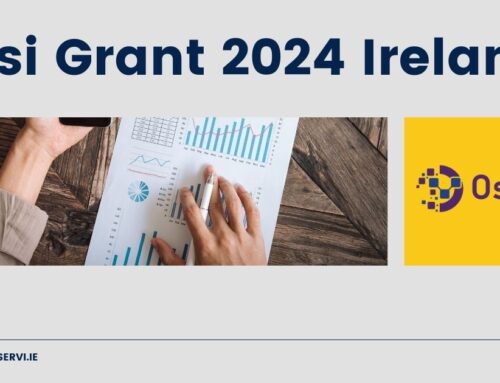Every year, the Irish budget is eagerly anticipated by businesses, employees, and the general public as it sets the stage for economic policies and financial plans for the year ahead. The latest Irish budget is no exception, with far-reaching implications for employers across the country. In this blog, we will delve into the key highlights of the most recent Irish budget and assess its impact on employers.
- Changes in Income Tax and USC Rates
One of the most significant aspects of any budget is the changes in income tax rates. The 2023 Irish budget announced changes in income tax and Universal Social Charge (USC) rates. While there were no major rate adjustments, maintaining stable tax rates can provide employers with a degree of certainty and stability in their financial planning. It enables employers to estimate labor costs and employee net income more accurately, which is essential for budgeting and compensation packages.
- USC Threshold Adjustments
The 2023 budget also brought adjustments to the Universal Social Charge thresholds. This impacts both employers and employees as USC is paid on gross income. The changes include higher thresholds before the 2% USC rate applies, which can translate to a marginal increase in take-home pay for employees. This can influence employee morale and motivation, but employers should consider the net effect on their labor costs and financial planning.
- Employment Incentives
The Irish government continues to focus on stimulating employment and economic growth. As a result, the 2023 budget introduced various employment incentives that can benefit employers. The extension of the reduced 9% rate of VAT for the tourism and hospitality sector can help boost these industries, leading to potential business growth and increased employment.
Moreover, the Employment Wage Subsidy Scheme (EWSS) has been extended until December 2023. This scheme provides financial support to employers who have experienced a reduction in turnover due to the pandemic. The extension of the EWSS can be a lifeline for businesses struggling to recover from the economic impacts of COVID-19.
Employers should be aware of and take advantage of these incentives to optimize their business operations and finances. They can explore opportunities for expansion and investment, especially in sectors where government support is available.
- Investment in Education and Training
The 2023 budget allocated additional funding to education and training programs. This is a positive sign for employers as a well-educated and skilled workforce is essential for business growth and competitiveness. Employers can benefit from government investments in upskilling and reskilling programs to ensure their employees have the necessary skills and knowledge to meet industry demands.
It’s also an opportunity for employers to collaborate with educational institutions and offer training programs tailored to their specific needs. By participating in such initiatives, employers can contribute to the development of a more capable workforce, aligning with their business goals and requirements.
- Carbon Tax and Environmental Initiatives
The latest Irish budget reflects the growing emphasis on environmental sustainability. One notable change is the increase in the carbon tax rate, which can impact businesses’ operating costs, particularly those with high energy consumption. Employers should consider energy-saving measures and explore green alternatives to mitigate the financial impact of this increase.
Additionally, the government has pledged to allocate funds to support green energy and environmental projects. Employers in sectors related to sustainability and clean energy should keep a close eye on these developments, as they might present growth opportunities and potential partnerships in emerging green industries.
- Infrastructure Investment
Infrastructure development is a crucial component of any budget. The Irish budget includes significant allocations for infrastructure projects, such as public transport and housing. These investments can have a direct impact on employers, particularly those in construction, real estate, and related industries. Increased infrastructure spending can lead to greater business opportunities and job creation.
Employers should monitor these developments and assess how they can position their businesses to take advantage of the increased demand for construction and related services. Collaboration with government and private partners involved in infrastructure projects can open doors to new contracts and growth.
- Remote Working and Hybrid Models
The COVID-19 pandemic transformed the way people work, with remote and hybrid work models becoming more prevalent. The 2023 budget acknowledges this shift by providing tax relief for remote working expenses. Employers who support remote work arrangements may benefit from this initiative by enhancing their employee benefits packages and recruitment strategies.
Employers should consider the potential cost savings and increased flexibility associated with remote work when formulating their human resources policies and strategies.
Conclusion
The latest Irish budget brings a mix of continuity and change, with a focus on economic recovery, sustainability, and education. Employers in Ireland need to assess how these changes affect their businesses and adjust their strategies and operations accordingly.
Stable income tax and USC rates provide some financial predictability for employers, while employment incentives and education funding offer opportunities for growth and workforce development. Employers must also be mindful of the environmental and infrastructure aspects of the budget, adapting to the shifting landscape of sustainability and infrastructure development.
Lastly, the budget recognizes the evolving nature of work with its support for remote and hybrid working. Employers should leverage these initiatives to enhance their workforce management and recruitment practices.
In summary, the latest Irish budget, like any budget, offers both challenges and opportunities for employers. Staying informed and agile is essential for navigating these changes successfully and ensuring long-term business success in the ever-evolving Irish economic landscape.
Red more About: What are the grants available to small businesses in Ireland?
Continue Reading
Get a personal consultation.
Call us today at (01) 5170179
Packages to suit your budget (we are on avg 30% better value than competitors)..
Frequent Searches Leading To Pages:
Payroll Services Ireland | Payroll Services | Payroll Ireland | Payroll Outsourcing Ireland | Outsourced Irish Payroll | Outsource Payroll Services Ireland | Outsourced Irish Payroll Services Dublin & Ireland | Ireland Payroll Service | Payroll companies Ireland | Payroll service provider




